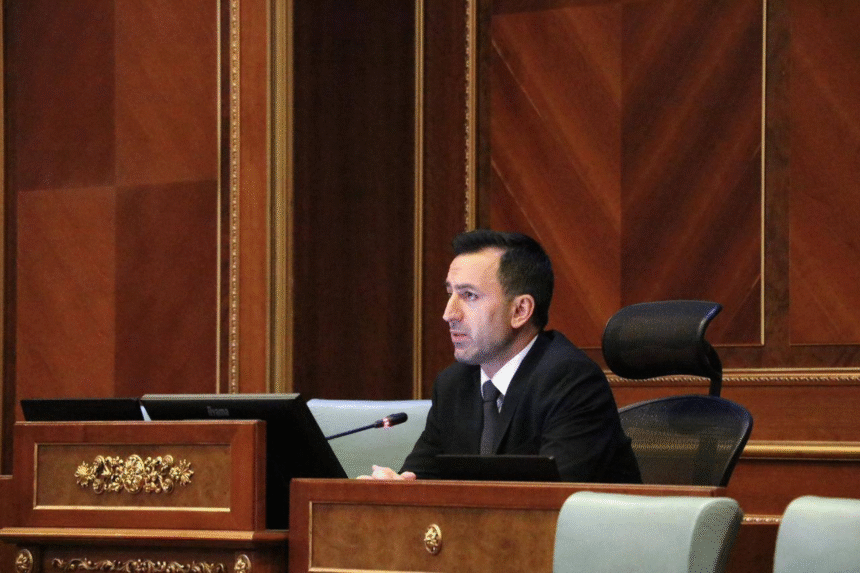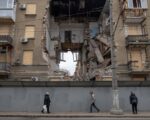The election of Dimal Basha as Speaker of the Assembly raised hopes that the blockade in the Kosovo Parliament would finally come to an end. However, another obstacle quickly arose. The constitution of the Assembly stalled over the election of the Serb deputy speaker, since – encouraged by Vetëvendosje – voting for this position was separated from the usual package of minority deputy speakers.
After the case was referred to it, the Constitutional Court imposed a temporary suspension of the Assembly’s work for 25 days, which expired yesterday. Expectations grew that a ruling would clarify the way forward and put an end to the blockade. Yet, this did not happen – at least not until the full decision is published.
After the suspension, the Court ruled yesterday that the Kosovo Assembly is not constituted and ordered that the constitutive session must be completed within the remaining 12 days. This deadline will begin once the decision is published on the Court’s website and in the Official Gazette.
The Constitutional Court also issued another order to the elected MPs – one that will be difficult to enforce: during the process of electing the Serb deputy speaker, MPs must exercise their constitutional function in the best interest of the Republic of Kosovo, in line with the Constitution and the Assembly’s Rules of Procedure.
LDK MP Arben Gashi signaled what might follow if the Assembly is still not constituted after the 12-day deadline:
“From the day the decision enters into force, the Assembly has only 12 days to complete the process. The Court has obliged all MPs to perform their function in the interest of the Republic of Kosovo, respecting the Constitution and the Rules of Procedure. The constitutional logic is clear: if the Assembly is not constituted within the constitutional deadline, it is dissolved and citizens decide again in elections within 45 days. There are no more excuses for political blockades. The path is simple: either the Assembly is constituted, or the country goes to elections,” he wrote.
But what is the way forward without the will to constitute the Assembly, and without the possibility of holding elections before constitution?
When, back in August, the Court gave a 30-day deadline for constitution and allowed up to three votes for Speaker, the situation seemed more optimistic. Vetëvendosje tested several names from former Kurti II ministers until the proposal of Dimal Basha received votes from other parties.
Once seated, the new Speaker pushed Vetëvendosje’s request to separate the Serb deputy speaker’s election from the minority package. MP Elbert Krasniqi, one of Kurti’s most loyal ministers during his four-year governance, also helped manage this process.
The aim was to elect Nenad Rashiq as deputy speaker – not a representative of Lista Srpska.
Initially, Srpska proposed Slavko Simiq, who failed to get the required votes after three attempts. Speaker Basha then decided that the Serb deputy speaker would be chosen by drawing lots. This was rejected by Srpska, which appealed to the Constitutional Court and boycotted the vote, even though Basha placed most of their MPs’ names to vote, formally. Rashiq also failed to get enough votes, since separating the vote from the package was considered unconstitutional.
Nevertheless, Basha declared the Assembly constituted – a stance also supported by President Vjosa Osmani.
In reaction, Srpska filed a complaint, and the Court imposed the suspension, effective September 5th until September 30th.
Vetëvendosje harshly criticized the Court for this, calling the 25-day suspension a waste of time, after nearly seven months of delays in forming institutions. The party also issued warnings against the Court.
Deputy Speaker Glauk Konjufca, in a speech before Vetëvendosje’s General Council, outlined three possible scenarios for the Court’s ruling, accusing one of them of potentially being “state treason.”
“Now the Court is before a major decision. The Constitution does not grant supremacy to the Serb winner party over the Assembly Presidency. The Court cannot interpret beyond the Constitution. Either the way is opened for the Assembly to continue, or we go to new elections. But the third scenario – which I cannot even imagine – is the worst possible one. A scenario amounting to state treason, I would say. A scenario that gives Srpska and Belgrade veto power over the Republic of Kosovo. The Republic of Kosovo cannot be held hostage by Srpska,” Konjufca said.







